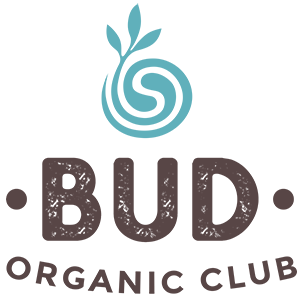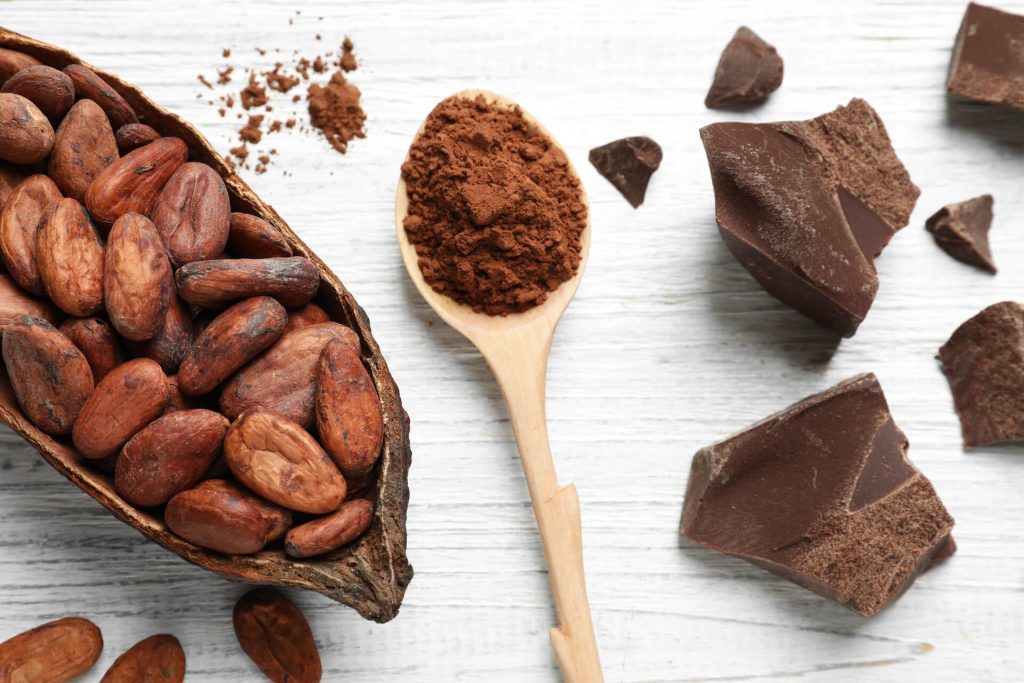With Easter just past, chocolate has been at the forefront of minds and budgets. However, many don’t know about the origins of this luxurious treat. Chocolate doesn’t come from the Easter Bunny or a factory in Tasmania! To understand where chocolate comes from, we need to travel to the Equator.
Cocoa pods are grown on trees in high rainfall and warm environments. About 70% of the world’s cocoa production comes from four west African countries: Ivory Coast, Ghana, Nigeria and Cameroon. 90% of cocoa is grown on small family farms between 2 and 15 hectares, and growing cocoa is an extremely labour-intensive practice.
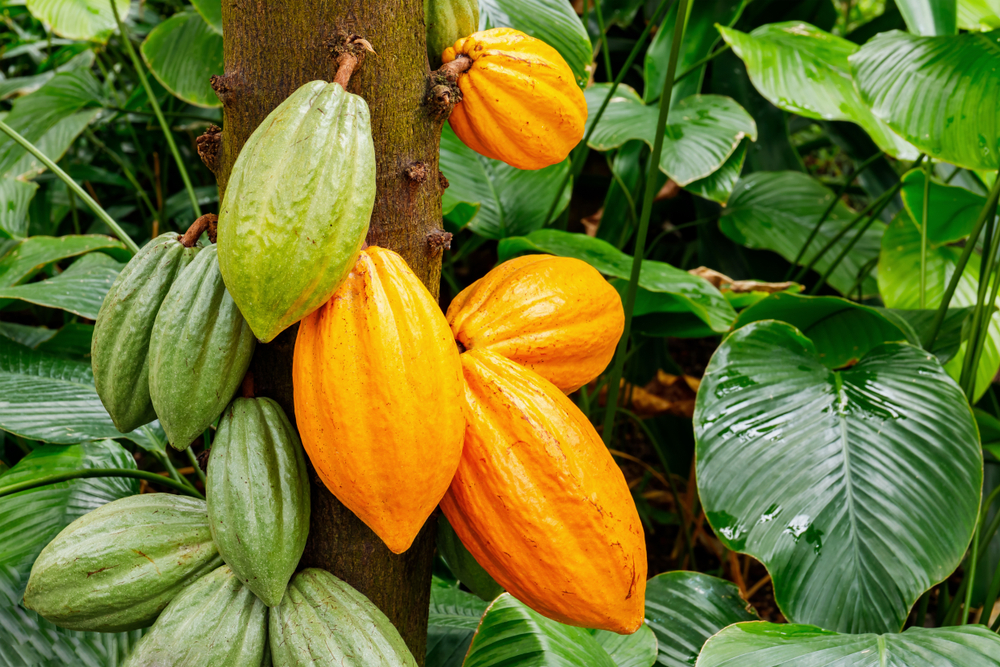
The challenge with cocoa
Part of the difficulty is because cocoa is a very delicate crop, easily impacted by changes in weather and susceptible to diseases and pests. Organic cocoa grows in traditionally biodiverse forest systems with other trees partially shading, supporting synthetic and pesticide-free production. This differs from large-scale monoculture systems which rely on high chemical inputs to get the biggest possible yield despite the environmental cost.
The large and colourful cocoa pods that grow on the trees are hand-harvested daily. Each cocoa pod contains 20 to 40 seeds in a sweet white pulp. This is hand separated and fermented, roasted and ground to produce cocoa and cocoa butter.
To put things into perspective, a fully-grown productive tree yields half a kilo of cocoa annually. Australians consume on average 5kg of chocolate per year! Though Australia has a small but burgeoning cocoa industry, the high labour costs associated with production have prevented large-scale production thus far.
What does this mean for you as a consumer?
When you buy chocolate there are often many labels (in addition to the organic certification) that may confuse you as a consumer. You might see ‘FSC’ or ‘Fairtrade’ on some of the chocolate you buy. These are all certification schemes that address different social and environmental issues arising from cocoa production.
Uncertified cacao does not guarantee that virgin rainforests aren’t being cut down for mass cocoa plantations. Nor does it guarantee that children are going to school rather than working.
Why is it important to care where your cocoa comes from?
Given the labour-intensive nature of cocoa production, it has been associated with numerous cases of child labour and slavery over the years. Making sure that your cocoa comes from a certification scheme (like organic or fairtrade) ensures that you aren’t financially contributing to this horrid practice. Also, you’ll be safe in the knowledge that you are supporting the economic empowerment of farmers in developing countries.
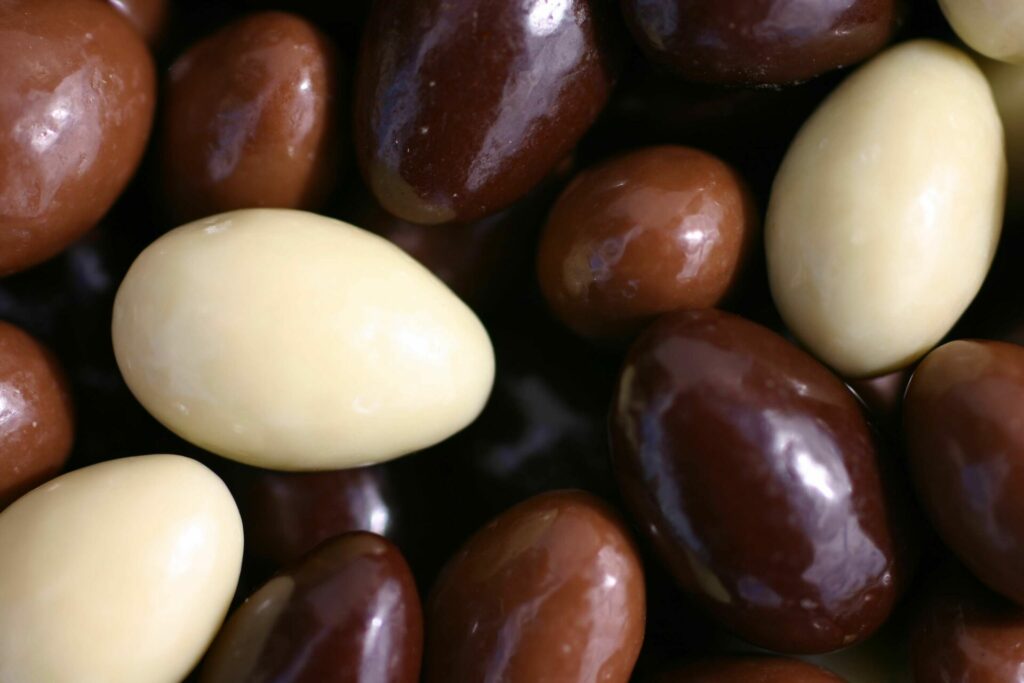
What is organic group certification?
Group certifications through organic co-operatives help ensure that farmers get a fair price for their cocoa. Small-scale producers don’t have the monetary means to pay for separate organic certification.
To address this, producers form co-operatives of up to 2000 producers where their products can be sold collectively. This gives them more negotiating power with the larger chocolate manufacturers, improving their incomes in turn. Organic group certification is not limited to the cocoa industry, with producers of coconuts, vanilla, tea and more employing the same concept.
What are the health benefits of organic chocolate?
Consumption of dark chocolate has been linked with lowering cholesterol levels, preventing cognitive decline and reducing the risk of cardiovascular problems. Raw cacao is rich in antioxidants, with a study showing polyphenols, and flavanols than any other fruits tested, including blueberries and acai berries. And of course, by choosing certified organic you’ll be opting for a food that is made without synthetic fertilisers, herbicides and other chemicals.
However, the effect of other ingredients in the chocolate such as alternate fats and sugar should also be taken into account. Chocolate is meant to be consumed in moderation!
Next time you go to buy chocolate, think of the hard-working farmers behind the treat and buy organic! Always look for the Bud logo to ensure all ingredients are certified organic.
Organic Chocolate Glossary
Mono Culture: The cultivation of a single crop in a given area.
Co-operatives: A farm, business, or other organisation which is owned and run jointly by its members, who share the profits or benefits.
Polyphenols: Polyphenols are compounds that we get through certain plant-based foods. They’re packed with antioxidants and potential health benefits.
Flavanols: Flavanols are a group of compounds found in cocoa, tea, apples, and many other plant-based foods and beverages.
Want to learn more?
Check out these other articles:
- What is organic beauty?
- What does free range mean?
- What are organic standards?
- Benefits of certified organic
Image credits – Shutterstock.
